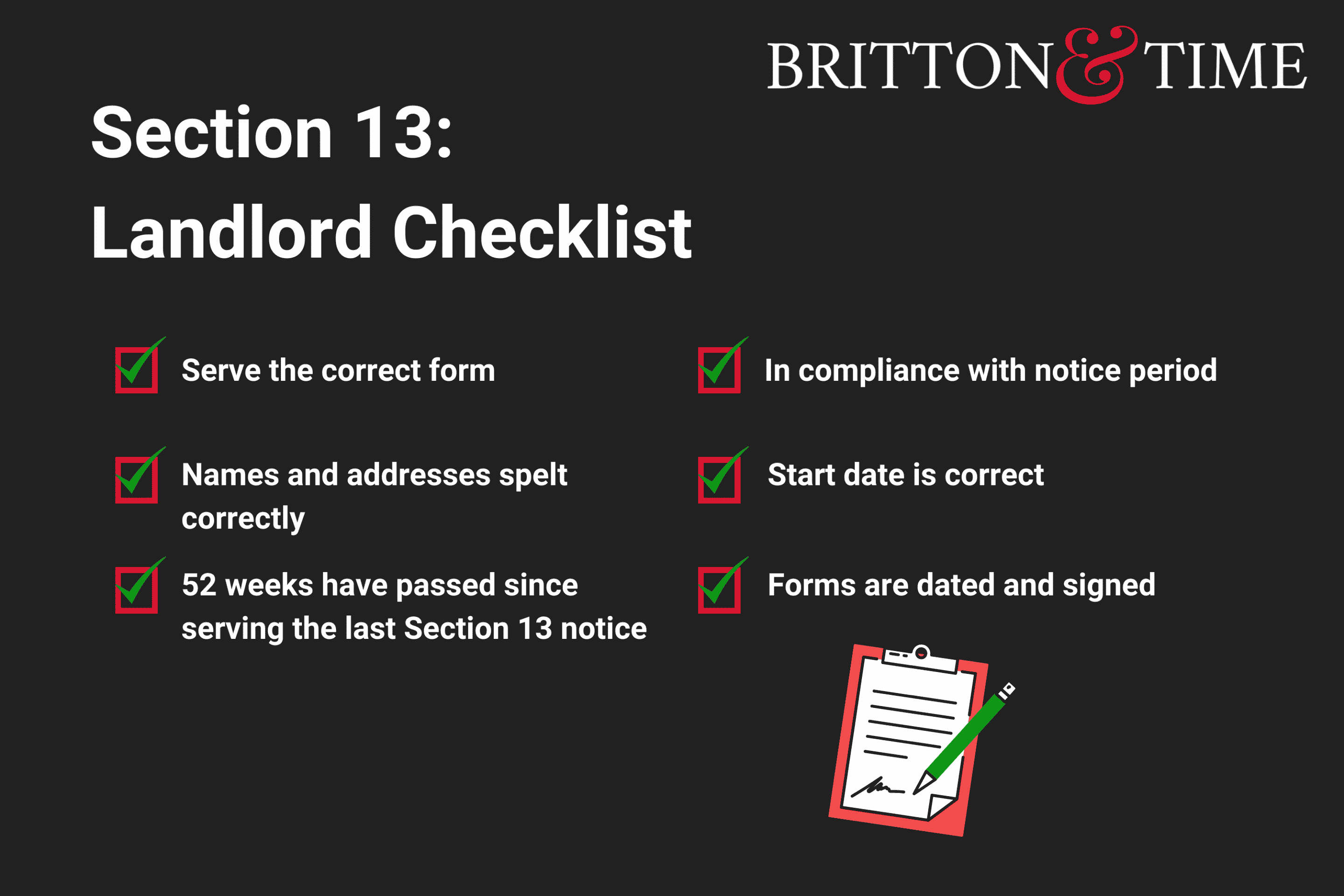If you’re a landlord and need to increase rent on a property that you currently let, it’s not as straightforward as simply raising the amount. There are legal procedures that you must adhere to, to ensure that you protect both yourself and your tenants. This could be a solution to alleviate rising mortgage costs in the current cost of living crisis, for landlords with buy-to-let properties.
In this article, our Head of Property Law Sophie Campbell-Adams will discuss these procedures, sharing her insights on the best course of action for any landlord wishing to increase rent.
Looking to cut to the chase? If you’re looking for a solicitor to help you resolve your case, just call us on 0203 007 5500, or submit a contact form.
What is a Section 13 notice?
 Section 13 of the Housing Act 1988 states that landlords wishing to increase a tenant’s rent may need to submit a correctly completed formal notice. This notice allows landlords to increase rent prices for assured shorthold and periodic assured tenancies.
Section 13 of the Housing Act 1988 states that landlords wishing to increase a tenant’s rent may need to submit a correctly completed formal notice. This notice allows landlords to increase rent prices for assured shorthold and periodic assured tenancies.
The act states that:
“For the purpose of securing an increase in the rent under a tenancy to which this section applies, the landlord may serve on the tenant a notice in the prescribed form proposing a new rent to take effect at the beginning of a new period of the tenancy specified in the notice”.
A valid notice must follow specific guidelines, and the exact rent increase must be reasonable and in line with market rates.
What does in line mean?
In line refers to how often other landlords raise their rents, and the average local rent. It could also be drawn from the performance of the national housing market.
How to serve a Section 13 notice?
To serve a Section 13 notice, you must fill out tenancy form 4. This document requires the disclosure of the property’s current rent and the proposed rent increase. The landlord also needs to state the starting date for the rent increase, and any charges that are also increasing (such as council tax or water charges).
It is highly important that you fill out this form correctly because tenants can dispute an invalid notice, rendering it obsolete. Some key points that should be checked before submitting the document are that:
- you serve the correct form
- the rent increase is paid from the correct start date
- you have not submitted a Section 13 notice within the last 52 weeks
- the notice complies with the proper notice period
- you spell all names and addresses correctly
- you date and sign the forms
To ensure your Section 13 notice is valid, get a solicitor to review it.

How much notice should you give before you increase rent?
Landlords can give a minimum notice, depending on the frequency that the tenants pay their rent. This notice is:
- 1 month for tenants paying weekly, fortnightly or monthly
- the same length as the payment frequency, for tenants paying between monthly and 6-monthly
- 6 months for tenants paying annually
If there is no written tenancy agreement, there is no fixed term. A Section 13 notice can only be served a year after the tenancy agreement has been signed, and the fixed term has ended. However, there are a few exceptions to this. If the tenant agrees to a new rent rate, signs a new agreement, or has a rent review clause in their contract, the landlord may increase their rent.
What will happen after serving a Section 13 notice?
If the tenant accepts the rent increase, they should pay the new rate on the specified date. If the tenant fails to respond to the Section 13 notice or fails to lodge a case with the rent tribunal, the assumption is that they accept the rent increase.
Can a tenant appeal a Section 13 notice?
 It is possible for a tenant to dispute the Section 13 notice by referring to the First-tier Tribunal for a judgement. They may decide to take this route if they believe that the rent increase is unreasonable.
It is possible for a tenant to dispute the Section 13 notice by referring to the First-tier Tribunal for a judgement. They may decide to take this route if they believe that the rent increase is unreasonable.
The Tribunal is often 2 or 3 property professionals, which could include solicitors and property surveyors. They will make a decision on whether the Section 13 notice is fair, forming a decision from similar properties rent rates in the area, and an inspection of the property. The Tribunal have the power to increase, decrease or keep the rent as it is.
Alternatives to using a Section 13 notice.
Some assured tenancy agreements, despite being fixed term, have a rent review clause. As an example of where this may come into effect, if a tenant has a 24-month fixed term contract, the rent review clause may allow for a percentage increase after the first year. This would be within the tenancy agreement that the tenants will have signed.
In the alternative, the landlord and tenant can agree to:
- Enter into a separate document that accompanies the tenancy agreement showing the agreement of a rent increase. The document would need to include the property address, the new agreed upon rent, and the date that the arrangements commence.
- Enter into a new tenancy agreement (possibly on the same terms) with a new rent.
If you are struggling to get a tenant to pay their increased rent on time following the submission of a Section 13 notice, you can also consider evicting them with a Section 8 notice or a Section 21 notice. This option would be available, should there be serious rent arrears or a persistent late payment of rent.
It’s always best to communicate with your tenants before you consider serving them with an eviction notice. Ensure that you keep a record of all forms of communication in case things escalate.











Comments
Hello
I need an appropriate professional to check a S13 notice that I have completed.I just need to make sure that is valid.This opinion can be via email.I am happy to a reasonable amount for this service.
Hiya. If a S13 was served correctly but tenant failed to respond to any communication about it and only after due date informed Landlord they've gone to a Tribunal, should Tenant have legally informed Landlord of their intentions before due date? I can't find any clarity online?
Hello Hannah, thank you for your comment. Our client care team will reach out to you by email to see if you would like to discuss your case further with our property solicitors.
Leave a comment Your email address will not be published.